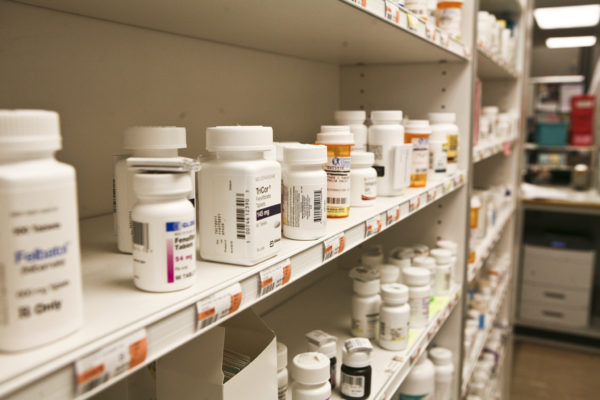Last week, a study conducted at Boston Children’s Hospital and published in the journal Pediatrics, confirmed speculation that an increase in prescription drug exposures and poisonings among children is related to a significant and increasing number of prescriptions being written for adults.
I asked the experts in our Drug and Poison Information Center (DPIC) what they thought of the study and they agree with the findings. Cincinnati Children’s has seen a similar rise in prescription drug exposures in children under 5 years old. In that age-group, medications were the #1 cause of unintentional exposure for our center, far exceeding any other type of exposure.
The study looked specifically at drugs that treat diabetes, cholesterol, blood pressure, and pain. The study indicates that more of these prescriptions are being written as the American population ages.
Our team in DPIC has seen that exposures are more likely in the homes of grandparents – many of whom are on multiple medications – who serve as babysitters for their grandchildren and haven’t fully child-proofed a home. The use of pill minders is also potentially problematic because it involves removing the drugs from their child-resistant containers.
What’s troubling about these specific medications is that they are often the drugs that can cause severe reactions with just one pill.
Some examples of medications that are of particular concern:
Oral diabetes medications
1. Diabinese® (chlorpropamide)
2. Amaryl ® (glimepiride)
3. Glucotrol ® (glipizide)
4. DiaBeta ® (glyburide)
5. Glucovance ® (glyburide / metformin combo)
6. Metaglip ® (glipizide / metformin combo)
Blood pressure/Heart medications
1. Catapress ® (clonidine)
2. Tenex ® (guanfacine)
3. Tenormin ® (atenolol)
4. Toprol XL ® (metoprolol)
5. Inderal ® (propranolol)
6. Cardizem ® (diltiazem)
7. Calan SR ® (verapamil)
8. Norvasc ® (amlodipine)
9. Procardia XL ® (nifedipine)
Opioids – Pain Medications
1. OxyContin ® (oxycodone)
2. Percocet ® (oxycodone / acetaminophen)
3. MS Contin ® (morphine sulfate)
4. Opana ® (oxymorphone)
5. Vicodin ® (hydrocodone / acetaminophen)
6. Suboxone ® (buprenorphine)
7. Methadose ® (methadone)
8. Dilaudid ® (hydromorphone)
9. Duragesic ® (fentanyl)
With all medications, but particularly these that are known to be especially dangerous for young children, prevention is key. Families must poison-proof their homes by keeping medications – prescription and over the counter – up and away and out of site. It is often quite useful to crawl around on the floor at the level of the child to see if you’ve missed anything and determine what might be attractive to little ones.
It’s also important to:
- poison-proof homes where your child visits (grandparents, babysitters, neighbors, etc.)
- and keep medications in original containers with child-resistant closures
And always, if you suspect your child or a child in your care has ingested or been exposed to a medication or another type of poison, contact poison control immediately at 1- 800-222-1222.






As you mentioned the listed drugs are extremely harmful to children. Parents and grandparents need to always supervise children of any age and ensure medications are out of reach for them. I thought your suggestion of seeing things through the eye level of kids was a great idea.